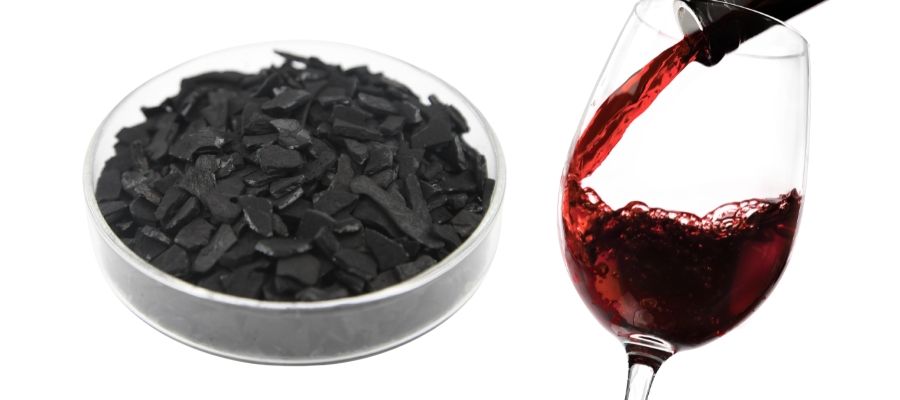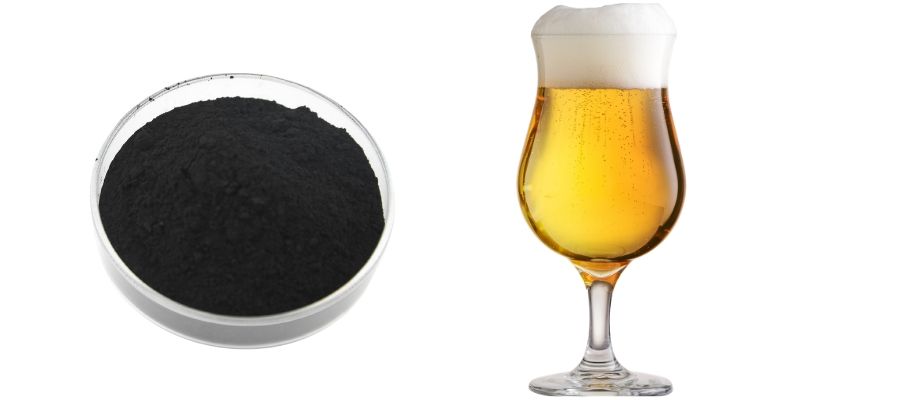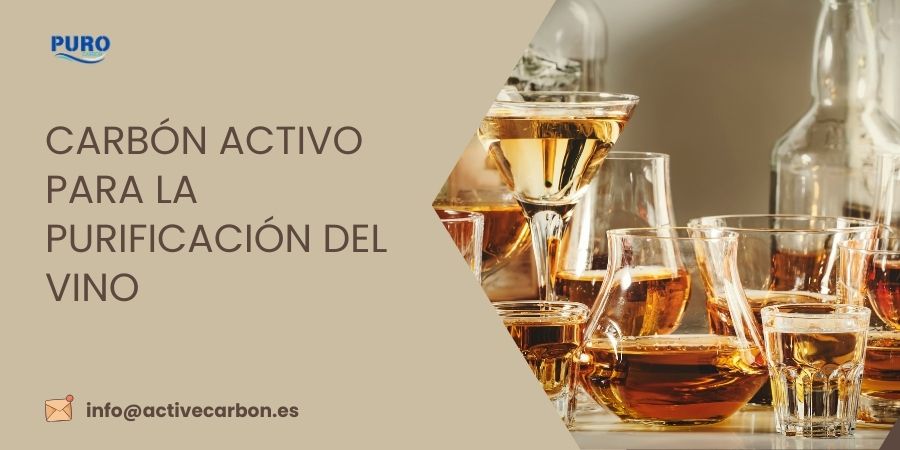During the production of spirits, the product often contains various impurities, such as undesirable odors, colors and other organic matter, which can affect the taste and quality of the beverage. To improve the taste and purity of spirits, activated carbon is widely used in the purification process.
Thanks to its excellent adsorption capacity, activated carbon is able to effectively remove these impurities, ensuring that the quality of the final product meets consumers' expectations. In this article, we will discuss the application of activated carbon in the purification of spirits, including its working principle, advantages and impact on the quality of spirits.
The Role of Activated Carbon in Wine Purification

Activated carbon plays a vital role in the purification of spirits, mainly because of its high adsorption capacity to remove impurities and off-flavors from the liquor, thus improving the quality and taste of the liquor. Some of the main applications of activated carbon in spirit purification are described below:
Elimination of odors and impurities
During the winemaking process, wine often produces various odors, such as hydrogen sulfide and phenolic substances, which seriously affect the quality of the wine. Activated carbon can effectively adsorb these undesirable substances, making the wine clear and pure. For example, fruit peel activated carbon is excellent for removing odors and impurities from wine, and can improve the smoothness and clarity of wine.
Adjustment of pH and wine composition
Activated carbon not only eliminates odors, but also regulates the pH of the wine, making it suitable for yeast growth and fermentation. This is essential for improving fermentation efficiency and the final quality of the wine. During the winemaking process, activated carbon adsorbs acidic and alkaline substances in the wine, thus optimizing its composition.
Improves wine stability
Activated carbon absorbs excess oxygen and carbon dioxide from spirits, slowing oxidation and fermentation and maintaining the stability and lasting flavor of spirits. This property makes activated carbon especially important in the storage and aging of spirits.
Acceleration of the aging process
During the aging of spirits, activated carbon helps remove sediment and impurities from the liquid and accelerate the maturation process. By using activated carbon, distillers can better control the flavor and texture of their spirits to achieve the desired quality.
Request a QuoteAdvantages of activated carbon in wine purification
Compared to other purification methods, activated carbon has the following advantages in the purification of spirits:
- Excellent adsorption propertiesActivated carbon has an extremely high specific surface area and porous structure, allowing it to effectively adsorb all types of impurities, odors and harmful substances. This high adsorption capacity makes it excellent for removing undesirable components from liquor, far surpassing many physical or chemical purification methods.
- Chemically selectiveUnlike some chemical treatments, activated carbon does not introduce new chemicals during the purification process and does not alter the composition of the wine. This guarantees the preservation of the original flavor and character of the wine.
- Simplicity of operationThe process of spirit purification using activated carbon is relatively simple, usually consisting of mixing the activated carbon with the spirit and removing the carbon particles by filtration. This method does not require complex equipment or stringent operating conditions and is suitable for a wide range of production scales.
- EconomicActivated carbon is relatively inexpensive and can be regenerated and reused, which reduces long-term operating costs. In contrast, some chemical purification methods may require frequent material changes or the use of expensive chemicals.
Choosing the right type of activated carbon
Different types of activated carbon can be used in the wine purification process depending on the type of wine and purification needs. Some common types of activated carbon and their applications are listed below:
Coconut shell activated carbon and molecular sieve
This type of activated carbon is usually composed of coconut shell activated carbon and molecular sieve in a scientific proportion, and it is mainly used for the purification of high and medium strength wine. It can accelerate the aging of white wine, reduce the taste of new wine, significantly reduce the spiciness and off-flavors, and make the wine body more smooth and refreshing.
Granulated activated carbon for wine

This type of activated carbon is usually made from high quality coconut shells or fruit peels, and is mainly used in the deodorization of alcohols, high alcohol base wines and in the preparation of low alcohol wines. It can eliminate the odor of high, medium and low base wines and produce a smooth, mellow and ripe feeling in new wines.
Request a QuotePowdered activated carbon for wine

This type of activated carbon is made from high quality wood chips, fruit shells, coconut shells and other raw materials, and is mainly used to remove turbidity, catalyze and age low-alcohol wines. It eliminates the odors of alcohol and high-proof alcohol, and prevents low-proof alcohol with high ester content from clouding at low temperatures.
When choosing activated carbon, the type of wine, the manufacturing process, as well as the pore size, adsorption capacity and treatment time of the activated carbon must be taken into account. We offer a wide range of activated carbon products for wine purification, please contact our professional team for a customized service for your wine purification.
Request a QuoteConclusion
Activated carbon plays an important role in the purification of spirits, improving their quality and safety. By choosing the right type of activated carbon and applying the correct purification process, spirits manufacturers can significantly improve the quality of their products and increase their competitiveness in the market.
If you are looking for high quality activated carbon products for spirit purification, please contact us. contact with us. Our team of professionals will provide you with tailor-made solutions to help you produce better quality spirits.
Frequently Asked Questions
Purification with activated carbon removes impurities and undesirable flavoring substances from wine and normally does not significantly affect the main flavoring characteristics of spirits. However, excessive use of activated carbon can adsorb some of the beneficial flavoring substances, so it is important to control the amount of activated carbon used according to specific needs.
It depends on the specific circumstances of the wine and the production process. Generally speaking, spirits purified with activated carbon have already reached a high degree of purity and do not necessarily need to be re-distilled. However, if you are looking for a higher quality or a special flavor, you may consider re-distilling.
The purification effect of activated carbon can be judged by sensory evaluation (e.g. taste, aroma, transparency) and physical and chemical indicator tests (e.g. methanol content, creosote content, ester content, etc.). A professional laboratory analysis can provide more accurate evaluation results.
